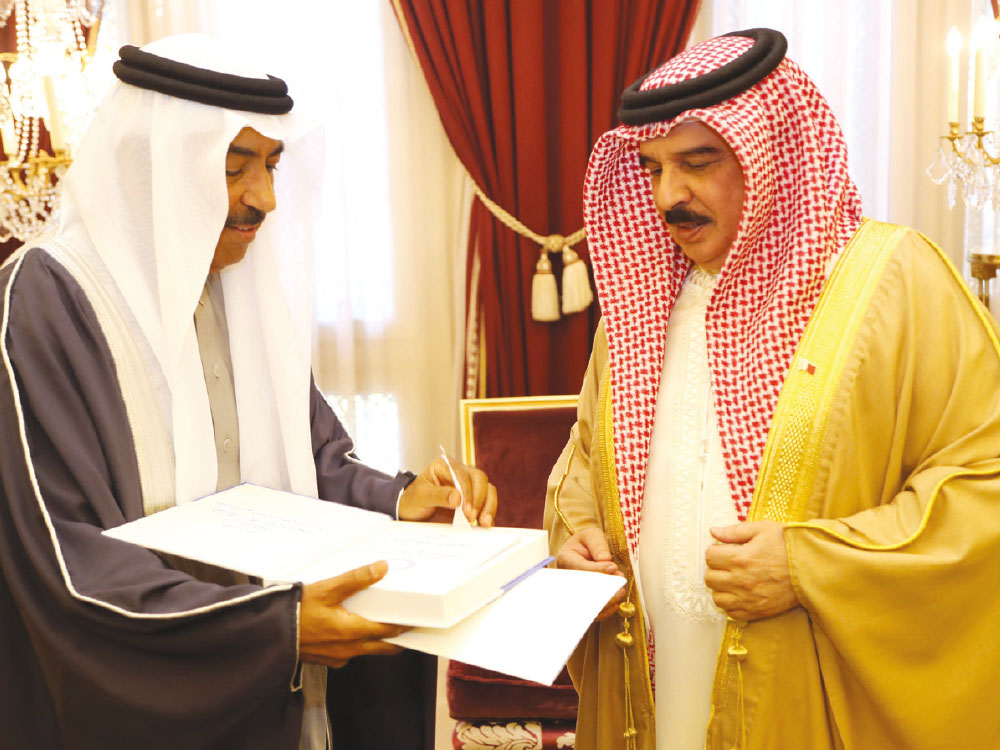Bahrain's national culture: Steady progress and enlightened thinking
Issue 55

This issue of the quarterly Folk Culture Journal is the second to be published in the Journal's fourteenth year. With steady progress and enlightened thinking, we have overcome technical and logistical obstacles and the fact that specialised journals have a limited number of readers, which usually prevents the continued publication of unique cultural journals in our Arab countries. Given the scarcity of knowledge-rich materials and wide range of repetitive, superficial papers lacking detailed insight, it is a real challenge to provide rich, attractive, high quality content. This is especially true in the digital age when printed publications face a variety of challenges irrespective of the subject or the importance of their content. The fact that readers have multiple distractions only compounds these difficulties.
Despite the high costs of printing, postage and air freight to more than 163 countries around the world, we continue to print this publication even though hundreds of thousands of readers from around the world have visited our Journal's website, which is available in six languages. We believe that our reader needs to be able to hold a physical version of this Journal.
Folk Culture has established itself as an important Arabic reference for researchers and scholars. In addition to being recognised by the Arab Citation and Impact Factor (Arcif), Folk Culture is requested by numerous universities, institutes, and research centres due to the rigorous standards that the scientific panel uses when evaluating submissions. The IOV provides links so that everyone who wishes to benefit from the Journal's content can do so.
It would not have been possible for the Journal to attain such high standing without the studies of the contributing scholars, researchers and authors, and we are proud of our continuing relationship with our network. We must acknowledge the extent of our collaboration with the International Organization of Folk Art (IOV), which has allowed us to contact researchers and innovators from various member nations throughout the world.
Due to the widespread interest in meeting the need for an in-depth study of Bahrain’s national culture, the Journal’s first field collection team was established in 2008 under the supervision of Dr. Dheya Al-Kaabi, a professor of narratives and modern literary criticism, in collaboration with the prestigious University of Bahrain. The team was formed to conduct a comprehensive field survey of Bahrain's cities and towns with 100 undergraduate Arabic Language and Literature students in order to collect and document folktales. The effort took more than ten years, and five elegant volumes were printed and distributed to a large number of individuals and institutions. The Folk Culture Journal then arranged to print and publish eleven books in the field of specialty, including a French book on Bahraini folk music that was published in Paris. These publications were showcased at the most important annual book fairs in Arab capitals.
We wanted a full-time professional field collection team that conducts periodic field research related to Bahrain's national culture as required, but this was not possible due to circumstances beyond our control. Indeed, at the beginning of 2010, we started looking for an Arab ethnomusicologist to undertake a field study related to the "Ardah". One of the most important folk arts that is unique to Bahrain and the Arabian Gulf, Ardah was based on the land and it spread to the Gulf coasts as Arab tribes migrated. The researcher worked to establish a team and prepare library materials until the infamous “Black Spring” intervened in 2011 and the study came to a halt. At the time, there was also an attempt to create a study of folk greetings in Bahrain, but it remains unfinished to this day.
Bahrain's national culture, which has some important but inactive tributaries, is in desperate need of in-depth studies and foundational and exploratory research that deal with the analysis of the basic components of the tributaries of Arab folk culture. His Majesty King Hamad bin Isa Al Khalifa of Bahrain has prioritised Arab folk culture by making it the centre of his reform project.
Only compassionate care that stems from the vision of a far-sighted leadership can ensure the success and continuity of our efforts in service of Arab folk culture and help to connect it to the cultures of the world.
This keeps us on our toes and ensures that we remain motivated and attentive. May Allah bless you with success.
Ali Abdullah Khalifa
Editor-in-Chief







































































